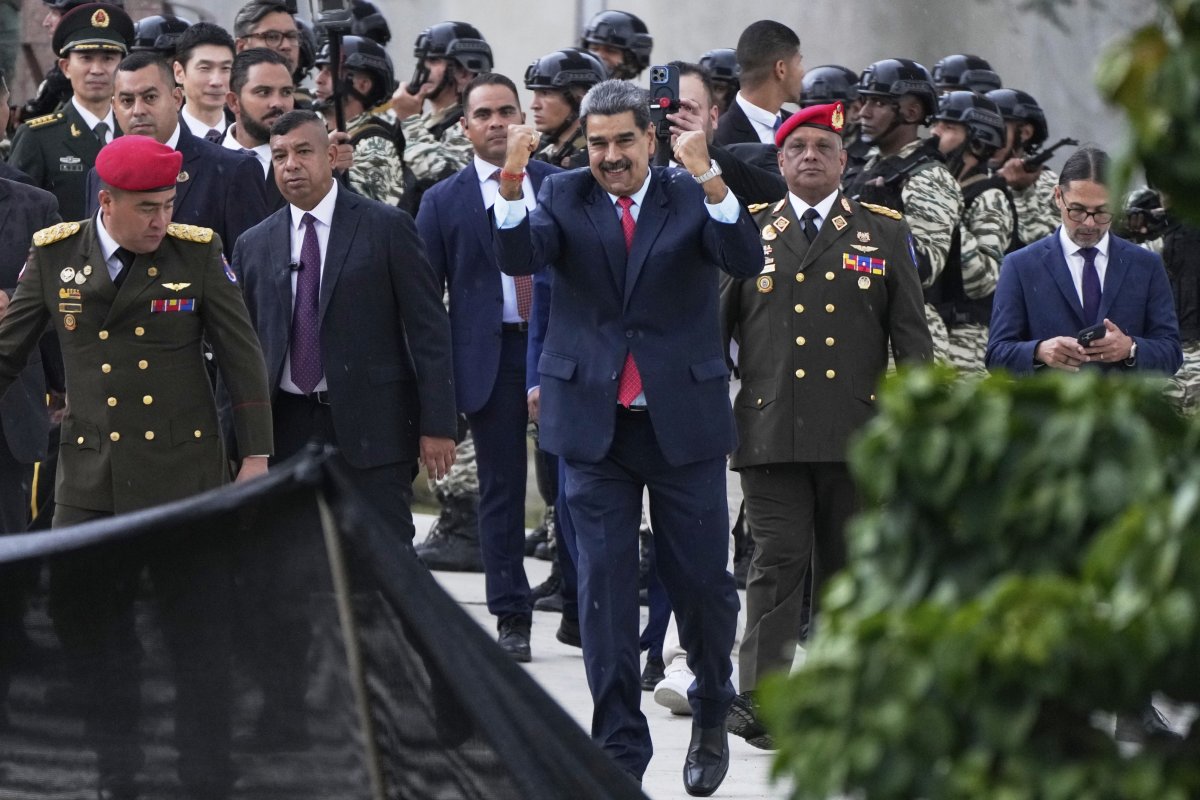Venezuela has announced a sweeping military buildup along its coasts to fight drug trafficking, a direct response to United States operations in the Caribbean. President Nicolás Maduro framed the expansion as a sovereign crackdown, insisting it is independent of U.S. pressure amid Washington’s deployment of 10 additional fighter jets to Puerto Rico and a strike on a Venezuelan vessel carrying drugs.
Venezuelan Defense Minister Vladimir Padrino clarified the military’s role in a social media video, saying, “No one is going to come and do the work for us. No one is going to step on this land and do what we’re supposed to do.”
Newsweek reached out to the State Department and Venezuela’s Foreign Ministry for comment.
Why It Matters
Venezuela’s new deployments mark a departure from its past approach, when the government largely dismissed the United States’ accusations of drug trafficking and focused on denouncing Washington’s actions. This time, Maduro is putting tens of thousands of troops into coastal and border regions, presenting the buildup as a proactive move to confront narcotics networks.
The shift reflects Caracas’s effort to show it can police its own territory without U.S. intervention. By moving from rhetoric to large-scale military action, Maduro is signaling that Venezuela will fight drug trafficking on its own terms while resisting Washington’s narrative of Caracas as a narco-state.

Ariana Cubillos/AP Photo
What To Know
Maduro has presented the troop surge as proof that Venezuela can tackle drug trafficking without outside interference. He argued that the buildup is part of a wider national defense strategy, not a concession to U.S. pressure. By linking the campaign to sovereignty, Maduro is seeking to rally domestic support and push back against Washington’s portrayal of his government as complicit in the drug trade.
U.S. Escalation
The expansion comes against the backdrop of President Donald Trump’s hard-line stance, which has tied narcotics enforcement to regional security and American lives lost to overdoses. The U.S. strike on a Venezuelan boat last week, which left 11 dead, was the most visible show of force so far and underscored Washington’s willingness to act unilaterally.
This show of force is part of a broader buildup, with Trump ordering a naval task force, including a submarine and seven warships, into the Caribbean on August 28, signaling a stepped-up U.S. presence near Venezuelan waters.
New Deployments
The expansion goes beyond past responses, with Caracas moving from denunciations of U.S. interference to large-scale action on its own soil. Padrino said the areas targeted are key drug trafficking routes and noted that the military presence will also increase on the island of Nueva Esparta and in the states of Sucre and Delta Amacuro. In total, approximately 25,000 troops will be deployed, more than double the current 10,000 stationed along the Colombian border.
Padrino underscored the shift in a social media video, declaring that Venezuela will handle its own fight against drug trafficking.
🇻🇪 El Ministro de Defensa de Venezuela, Vladimir Padrino López: “Hoy domingo, 7 de septiembre, reunido con mis hermanos del Estado Mayor Superior de la FANB, cumpliendo instrucciones de nuestro Comandante en Jefe y Presidente Constitucional Nicolás Maduro, nos encontramos… pic.twitter.com/dHAPoTFSeS
— El Payanes Press 🎙️🎥💻📰 (@ElPayanes) September 8, 2025
Iran Offers Support
Meanwhile, Iran’s Foreign Minister Abbas Araghchi spoke with Venezuela’s Yván Gil Pinto, condemning U.S. military actions in the Caribbean. Gil Pinto thanked Araghchi for Tehran’s support and emphasized the importance of respecting Venezuela’s sovereignty.
What People Are Saying
Vladimir Padrino, Venezuelan Defense Minister: “No one is going to come and do the work for us. No one is going to step on this land and do what we’re supposed to do.”
Iranian Foreign Minister Abbas Araghchi: “Threatening to use force against other independent developing nations is a clear violation of the U.N. Charter and a serious threat to international peace and security.”

Fernando Llano/AP Photo
What Happens Next
Venezuela’s expanded military deployment is expected to escalate tensions with the U.S., as Trump weighs additional strikes on suspected cartel targets. Both nations are now operating in a high-stakes environment where miscalculation could trigger direct confrontations, making the region a focal point in the broader U.S.-Venezuela standoff.


